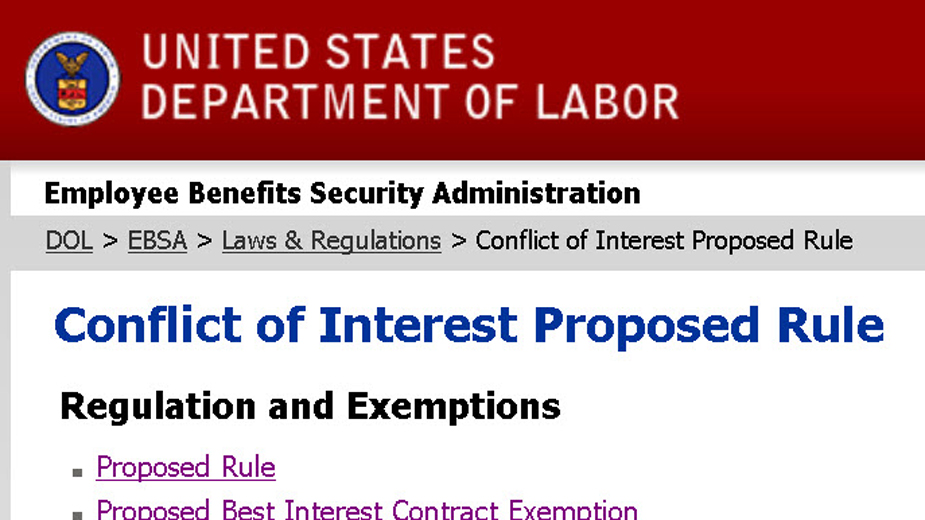Ryan Leads Charge Against Trump Fiduciary Rule Change
YOUNGSTOWN, Ohio – Democratic members of Ohio’s congressional delegation and allies took part in a conference call to shine a spotlight on a rule to protect investors that the Trump administration has targeted.
President Trump issued a memorandum Feb. 3 calling for the U.S. secretary of labor to examine the Fiduciary Duty Rule, which was scheduled to go into effect April 10, to determine whether it may “adversely affect” Americans’ ability to get access to retirement information and financial advice.
One of his administration’s priorities “is to empower Americans to make their own financial decisions, to facilitate their ability to save for retirement and build the individual wealth to afford typical lifetime expenses,” Trump said in the memorandum. The rule “may significantly alter” how Americans can receive financial advice and might not “be consistent” with his administration’s policies, he continued.
The rule requires financial advisers to put their clients interests first and not steer them toward products that generate higher fees or commissions for advisers and brokers when other products would better serve their clients.
Opponents of the rule, such as the U.S. Chamber of Commerce, argue that the rule could restrict retirement plan choices for small businesses and limit the advice financial experts can share with small business owners and their workers because of increased complexity and costs associated with the expanded definition of fiduciary.
Participants on the Thursday morning conference call, organized by U.S. Rep. Tim Ryan, argued that the Obama administration rule protects investors from conflicted investment advice, which costs Americans $17 billion in retirement savings annually.
The purpose of Thursday’s call was to try to bring attention to the issue, Ryan said. “There’s so much going on in Washington right now … the memorandum and this issue isn’t quite getting the attention of people across the country as we think it should be getting,” he said.
Trump has sent the proposal to the Office of Budget and Management to “delay and potentially kill the rule,” said Micah Hauptman, financial services counsel with the Consumer Federation of America. The rule will be proposed for public comment and the Department of Labor will take the comments into account, weigh “all the relevant considerations” regarding what it might do and decide whether or not to act.
Hauptman, along with Barbara Sykes, state director of the Ohio AARP, joined U.S. Sen. Sherrod Brown and U.S. Reps. March Kaptur and Ryan on the call.
Retirement security is one of the issues Ryan said he has focused on since entering Congress and prior to that, when he served in the Ohio Senate.
Most financial advisers “do great work” and help clients provide for their financial security, but there are individuals who try to take advantage of those clients, Ryan said. “Unfortunately, we need cops on the beat and we need rules in place and laws in place to make sure that that doesn’t happen,” he said.
“This conflict-of-interest rule is about lowering fees for Ohioans saving for retirement. It’s about making sure they have access to clear, transparent information about their 401(k)s and their retirement accounts,” Brown, D-Ohio, said. “If you’re trusting a broker with your family’s future, you deserve to know that the advice you get is not tilted by the broker’s compensation for one product over another.”
Trump promised to “drain the swamp,” but instead his cabinet “looks more like a Goldman Sachs executive retreat, and he’s rolling back rules that protect working families,” he added.
“It’s so essential that those who are saving for retirement have unbiased, fair advice and nobody’s taking advantage of them,” Kaptur, D-9 Ohio, said. Trump’s rule “is basically an abdication of what he promised us when he came to Ohio and said he would side with Main Street over Wall Street, and with workers over billionaires,” she remarked.
Though like many government regulations the rule “goes overboard” in what it is trying to accomplish, “it does put in some protections for investors,” said Andrew Moyer, a certified financial planner and principal of W3 Wealth Management, Warren.
“A fiduciary is somebody that’s supposed to do what is in the best interest of their client. I would think all of our clients would expect that of us,” he remarked during a phone interview following Ryan’s call. “As certified financial planners we would not only expect to do the best thing but it’s in our code of ethics that we act as a fiduciary in the first place.”
Copyright 2024 The Business Journal, Youngstown, Ohio.



